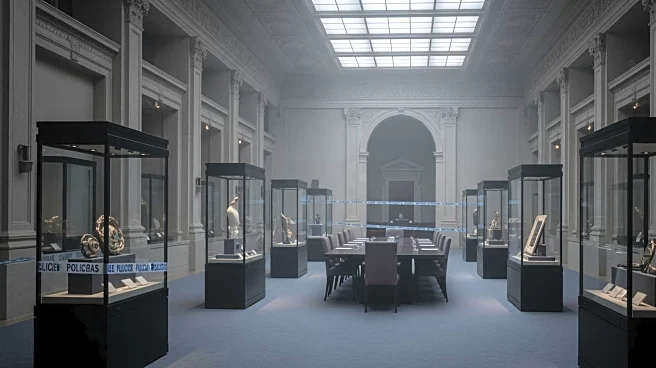What's Happening?
The Louvre Museum in Paris has been temporarily closed following a significant jewel heist. French officials reported that at least nine pieces of jewelry, described as having 'inestimable heritage and historical value,' were stolen. The theft was executed
in a brazen manner, with the perpetrators making their escape on motorcycles. The incident has raised concerns about the security measures in place at one of the world's most renowned museums.
Why It's Important?
The theft of such valuable and historically significant items from the Louvre highlights vulnerabilities in the security of cultural institutions. This incident could prompt museums worldwide to reassess their security protocols to prevent similar occurrences. The loss of these artifacts is not only a cultural blow but also a financial one, as the stolen items are irreplaceable and hold immense historical value. The heist may also impact tourism, as the Louvre is a major attraction, drawing millions of visitors annually.
What's Next?
Authorities are likely to intensify their investigation to recover the stolen items and apprehend the culprits. The museum may implement enhanced security measures to prevent future incidents. Additionally, there could be increased collaboration between international law enforcement agencies to track the stolen artifacts, which may surface in illegal markets. The incident may also lead to policy discussions on improving security at cultural heritage sites globally.
Beyond the Headlines
This event underscores the ongoing challenges faced by museums in protecting their collections from theft. It raises questions about the balance between accessibility and security in public institutions. The heist could also spark debates on the ethical responsibilities of museums in safeguarding cultural heritage and the role of technology in enhancing security measures.
















